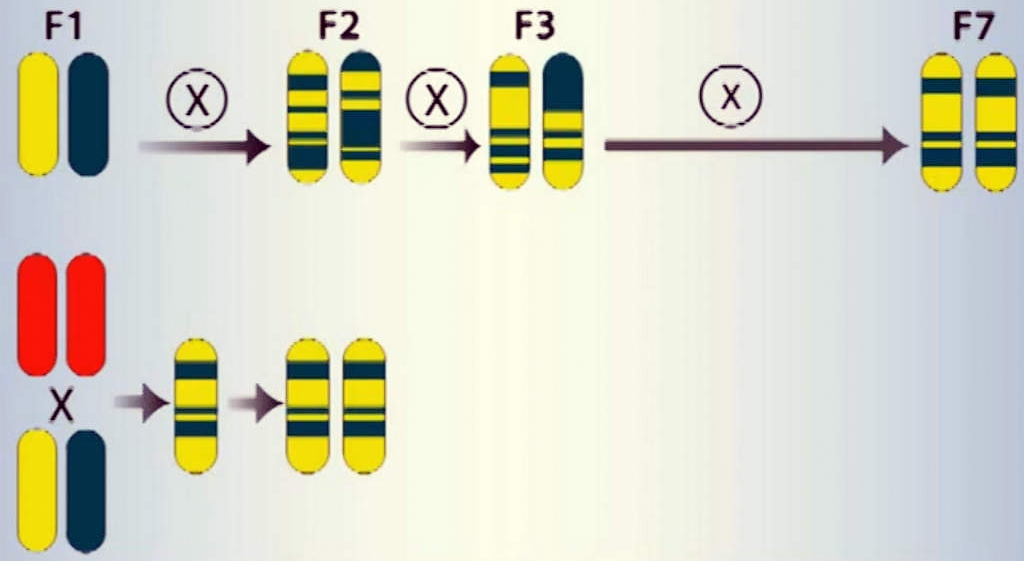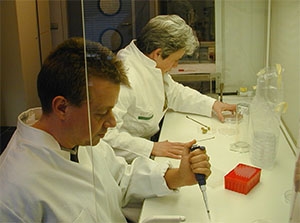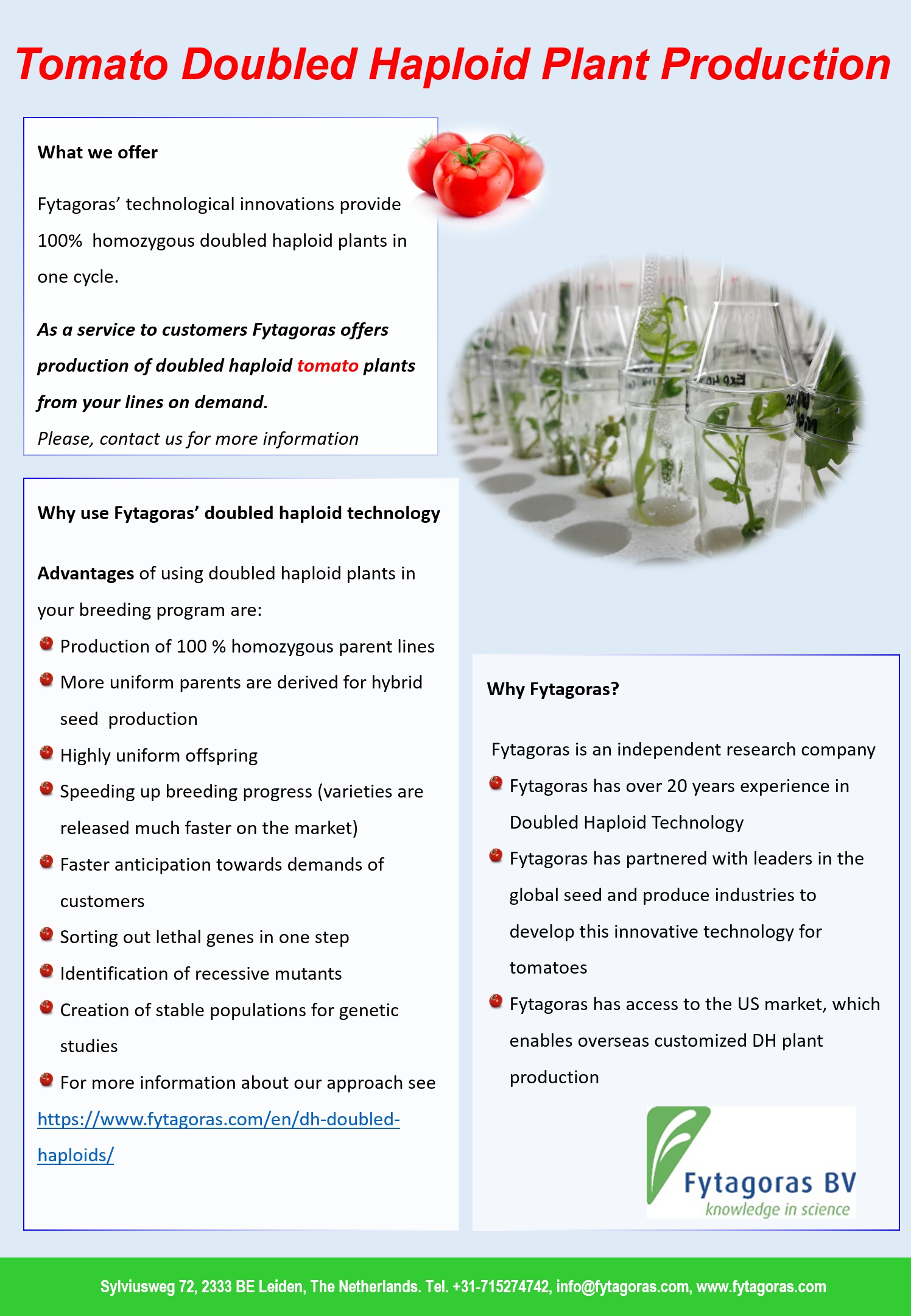Respect for your privacy is our priority
The cookie is a small information file stored in your browser each time you visit our web page.Cookies are useful because they record the history of your activity on our web page. Thus, when you return to the page, it identifies you and configures its content based on your browsing habits, your identity and your preferences.
You may accept cookies or refuse, block or delete cookies, at your convenience. To do this, you can choose from one of the options available on this window or even and if necessary, by configuring your browser.
If you refuse cookies, we can not guarantee the proper functioning of the various features of our web page.
For more information, please read the COOKIES INFORMATION section on our web page.



 As a service to customers, Fytagoras offers production of doubled haploid tomato plants from existing customer-owned lines on demand. The success of this approach has been proven for a wide variety of crops. Fytagoras in Leiden has many years of experience and a great track record in the development of protocols for the production of doubled haploid plants from many crops and varieties. The company has partnered with leaders in the global seed and produce industries to develop this innovative technology for tomatoes.
As a service to customers, Fytagoras offers production of doubled haploid tomato plants from existing customer-owned lines on demand. The success of this approach has been proven for a wide variety of crops. Fytagoras in Leiden has many years of experience and a great track record in the development of protocols for the production of doubled haploid plants from many crops and varieties. The company has partnered with leaders in the global seed and produce industries to develop this innovative technology for tomatoes.



























